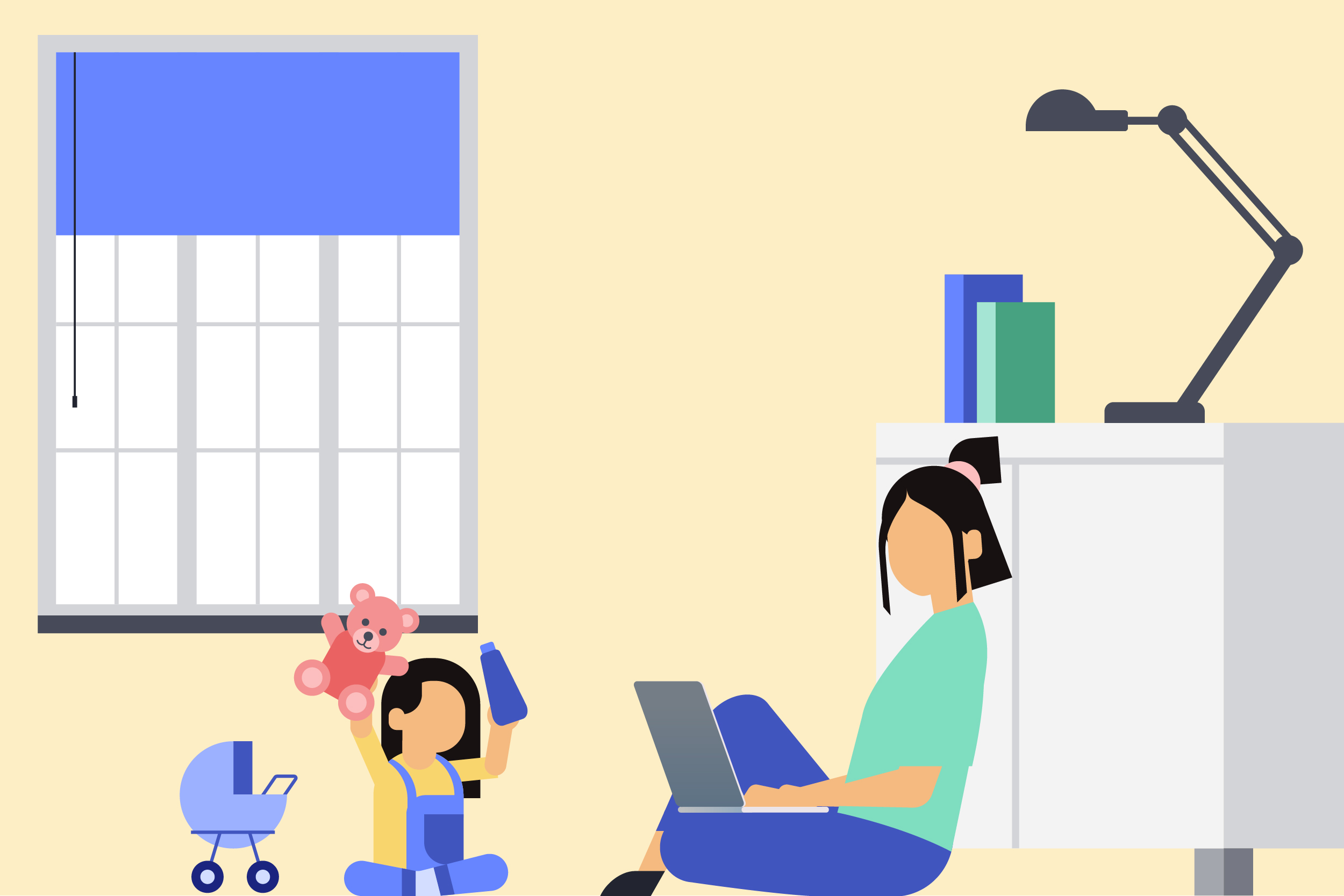Have you ever walked into work on a Monday practically feeling relief because your weekend with the kids was particularly exhausting? Or, towards the end of your maternity leave, were you feeling more than ready to get back to work because you missed it? These are all perfectly normal things for parents who enjoy working outside the home, however, there does come a point where work becomes less of a break from motherhood and more of an escape.
As Dr. Jarrett Patton puts it, “Parenting is more difficult than any job you get paid for. Just like you need a break with your own job, it’s important to take breaks from parenting.” This statement makes me feel seen. I’m in the toddler and preschool stage of parenting, so oftentimes work feels like a refuge from playing dolls, hearing songs from Little Baby Bum on a loop and the seemingly endless requests for snacks that typically go uneaten. It’s a place where I can think critically, interact with adults and, frankly, not have to put on a tutu and pretend to be a ballerina.
Work can also serve as a nice distraction once in a while, a chance to push aside a parenting situation that you just don’t have the emotional or mental energy to deal with at that moment. Once you start ignoring the situation entirely, to the point where your kids are at some kind of disadvantage because of it, that distraction turns into escapism.

What escapism through work may look like
I’ve used work as an escape from motherhood more than a few times. After I had my second daughter, I willingly ended my 12-week maternity leave early, after seven weeks, because she was a preemie who had a NICU stay, and I wanted to focus on anything other than the fact that I was failing to bond with her. It happened again when my older daughter started having serious behavior problems at school. I would claim I was just “too busy” at work to pick up my phone and read the daily updates from her teachers because they had become overwhelmingly negative and I was just exhausted by it.
In both of these situations, I was trying to escape the actual situation at hand as well as my own feelings of failure as a mom. I had been so beaten down by the realities of motherhood that I chose to put more energy into work because at least I was thriving there. Unfortunately, this meant my kids weren’t getting what they deserved and needed from me, and that’s when it became a problem.
The point where a break or distraction turns into escapism looks different for everyone based on their situation, but here are some examples:
- Opting to work late on a regular basis to avoid going home
- Frequently using work as an excuse to cancel or miss important events like a parent-teacher conference, doctor appointment for a chronic illness or ongoing situation or playdates
- Ignoring teachers or caregivers when they try to express concerns about your child
- Regularly feeling an extreme sense of relief to be at work rather than at home
- Unnecessarily answering emails from work or engaging in online conversations with your colleagues during/throughout family-time consistently
- Consciously prioritizing work over your kids’ needs to avoid some kind of issue
Possible triggers
Everyone has different thresholds in parenting, so what was triggering for me another mom may have sailed through with ease. Personality has a lot to do with this. For me, when I look back at the times I’ve escaped into work it was always during crises I never anticipated coming and that, despite my best efforts, I was not succeeding in managing. I hate feeling like a failure and I will actively walk away from something before it gets to the point where it is clear that I’ve failed. I basically have a “you can’t fire me, I quit!” mentality in all areas of life, but quitting parenthood isn’t an option. I find it painful to sit with feelings of failure, so I try to drown out those feelings by putting my energy into something I am good at instead.
Other possible triggers could be:
- Constant arguments or tension
- A bullying situation (where your child is the bully or is being bullied)
- Feeling disconnected from your kid
- Defiant behavior
- Your child’s medical diagnosis that’s hard to manage or cope with
- Struggling to motivate your child in school, social aspects ect.
- Custody in a difficult divorce or separation
Remember, using work as a distraction from any of these triggers is absolutely normal, it only becomes a problem when you’re blatantly using work as an excuse to avoid dealing with these issues when they need to be addressed.
Setting limits
It’s hard to imagine anyone actively decides to ignore parenting responsibilities by escaping into work. It’s a gradual process that often happens without you becoming aware of it until it’s a problem. There’s no fool-proof way to avoid falling into this, but you can put some boundaries in place now that will help you better identify when you’re slipping too far into escapism so you can, ideally, get yourself out quicker.
- Get a physical calendar for kid activities and events. I know this one is difficult because your phone has a nice, clean system. However, it’s really easy to just delete an event on your phone and never think about it again. With a physical calendar, you have to cross off items that you cancel, so they’re still visible. Get in the habit of crossing off any kid-event that you cancel or miss for work so that you can visualize how often it’s happening and correct your behavior if it looks like it’s getting to be too much.
- Set boundaries around email and work obligations during family time. This is good advice all of the time, and when you get into the habit of it when things are good at home it will be easier for you to notice if you’re not sticking to it when motherhood is getting tough.
- Block off time once a week to catch up on kid-related tasks. If your work schedule allows, set an ongoing weekly 30-minute “meeting” that you use to return calls or emails or reschedule appointments for your kids. This way teachers, doctors and playdates won’t go ignored for long periods of time. If this isn’t possible with your work situation, consider using 10 minutes of your lunch break, three days a week, instead.
- Get into the habit of tracking your work hours. Whether you have to or not, write down when you’re starting your day and ending it. If you have to take calls or answer emails at night, track that time, too. This will give you an idea of how much you’re working when things are calm as a parent, that way you can easily see if you’re starting to spend more and more time at work when motherhood is getting a little more difficult.
It's not always that clear cut
Opting to stay late now and then to just have a few extra minutes to yourself doesn’t mean you’re ignoring your responsibilities, and having to work more hours than normal because of a project doesn’t equate to escapism. That’s why it can be so difficult to identify when distraction starts turning into an escape. Catching it early is ideal, but even if you don’t notice it’s happened until you’re in too deep, you are still a great parent and you’re probably just doing your best to cope with a difficult situation. Parenting is hard, and you’re doing your best. Don’t beat yourself up over it, simply reprioritize and adjust.
Join a community that cares
Join our talented community of moms and mom allies. Whether you’re searching for your next opportunity, looking to give or get career guidance or just getting started—you’re in the right place. 



